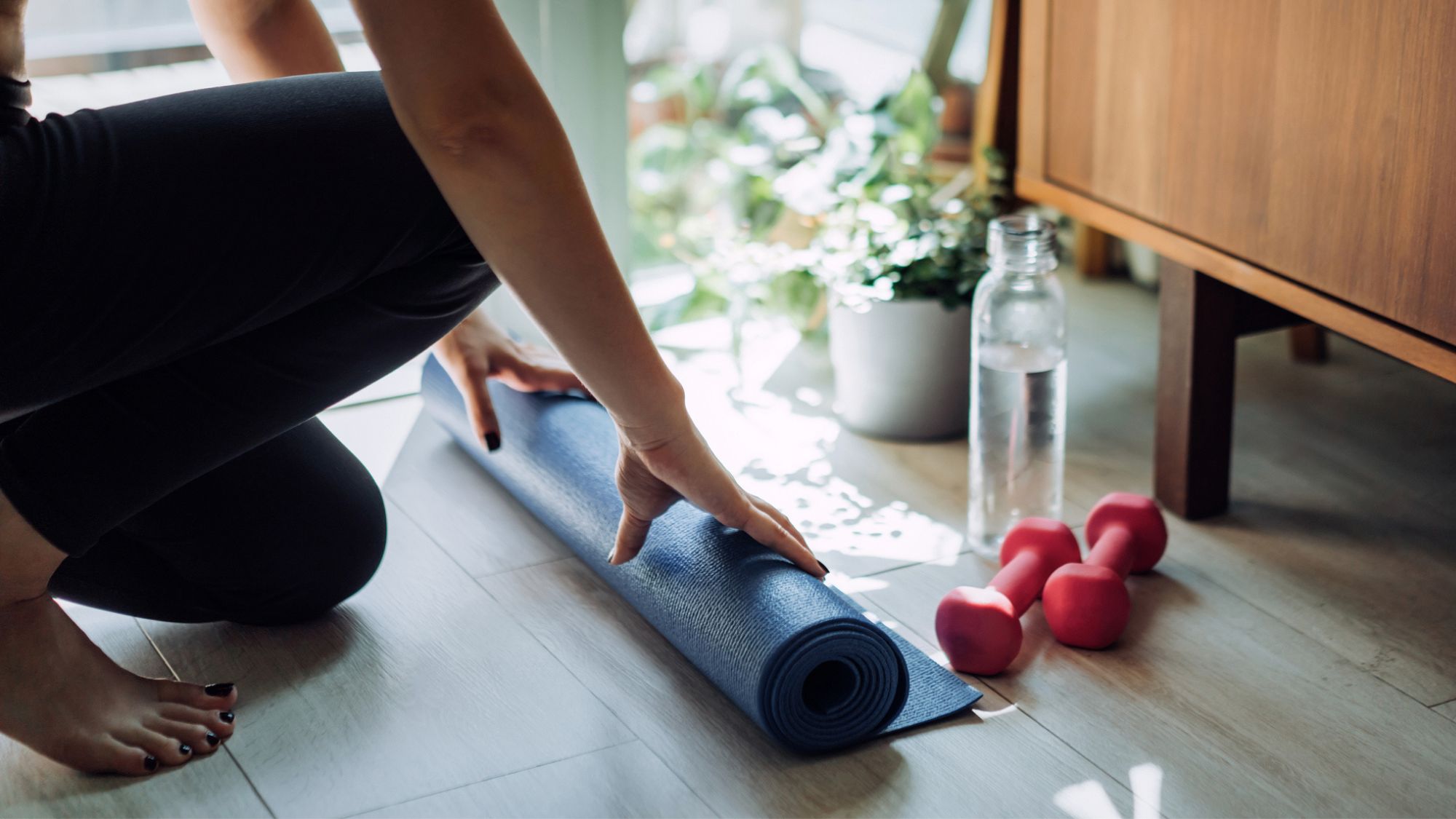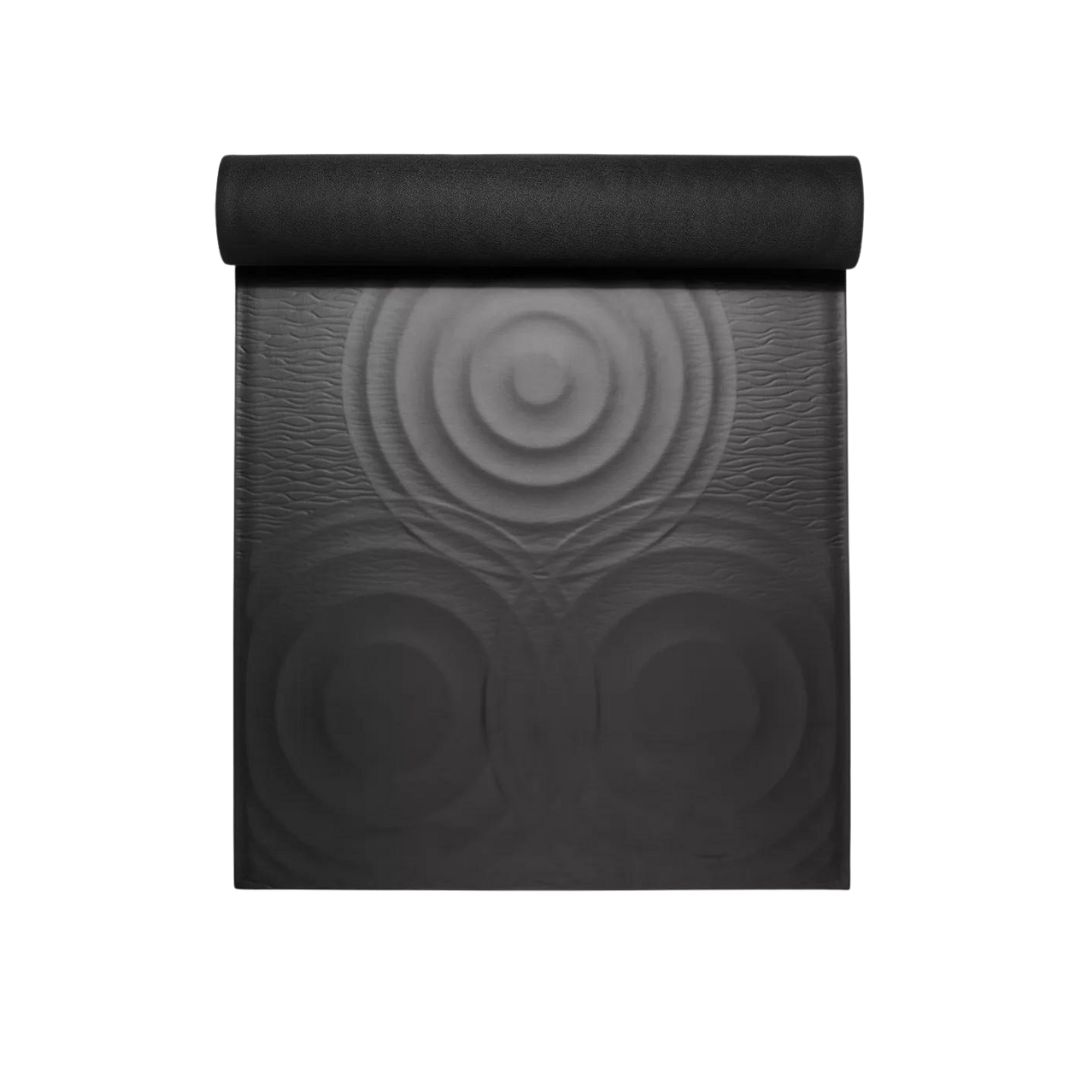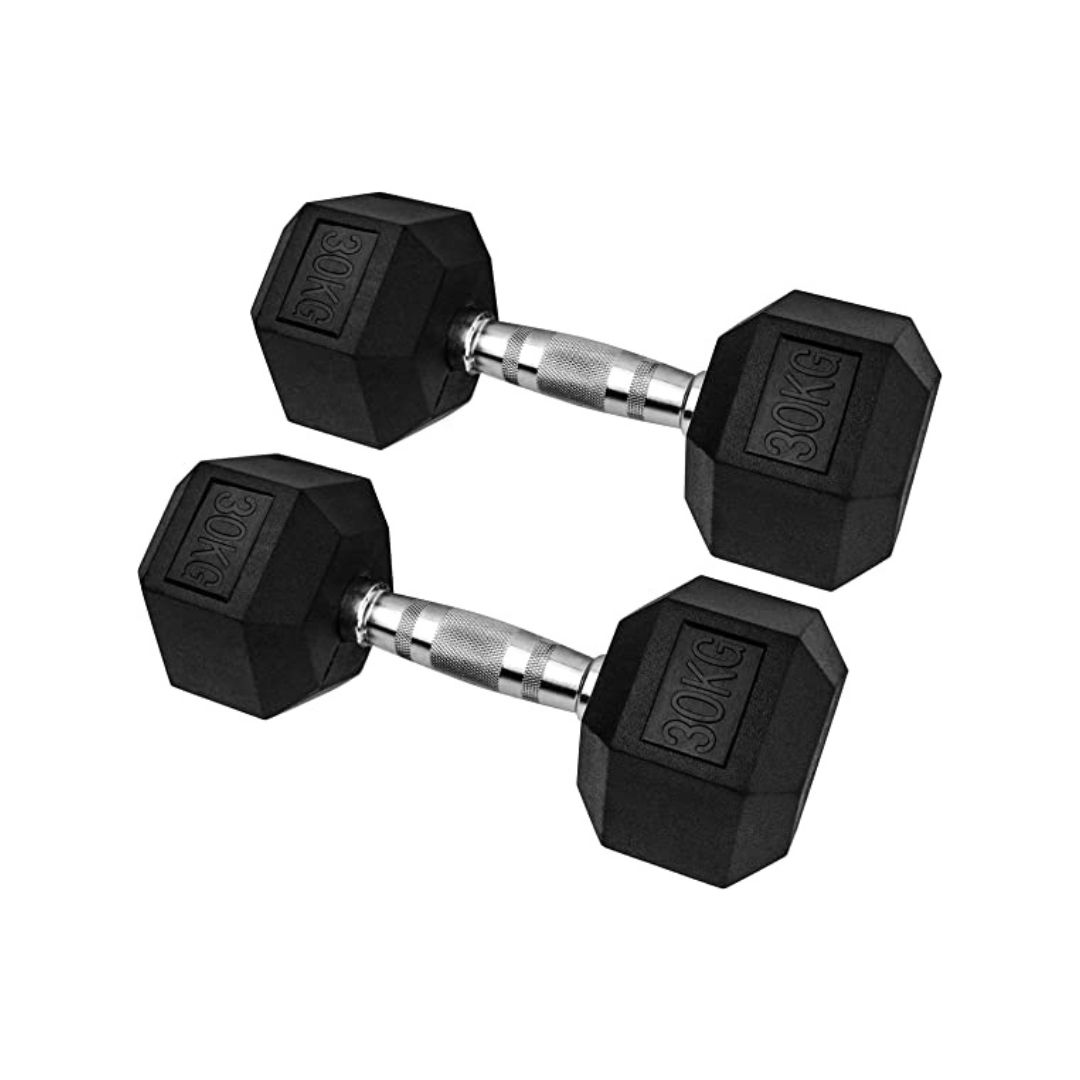Strength training at home continues to be one of the most popular workouts, according to Google - how to make your home sessions the most effective
No gym membership? No worries.


Of all the takeaways from the Covid pandemic, the boom in popularity when it comes to strength training at home has to be one of the ones we can get on board with the most. While many of the things that grounded us over the last few years have faded away (full-time working from home, we’re looking at you), weight training from the comfort of your living room has gone from – excuse the pun – strength to strength.
So, what is it about working up a sweat in your own home that has such enduring appeal? Well, the benefits of strength training are numerous, with the workout promising to boost your muscle tone, metabolism, bone health, and more. Studies have proven that strength training at home is as effective as it is easy, plus, the perks of doing it at home mean that you workout in your pyjamas if you fancy it – no gym-timidation, here.
Not sure what strength training is? In short, it's any workout that improves your muscle strength by making muscles work against a weight or force (think your own body weight, a resistance band, or weights).
What type of strength training you opt for is totally up to you - whether it's low impact strength training or a more high energy circuits vibe, one thing's for certain: strength training will boost both your physical and mental health, releasing handy feel-good endorphins.
If you’d like to give it a go but aren't sure where to start, we’ve got you covered. Below, top personal trainers share their favourite PT-approved home strength training workouts suitable for everyone. While you’re here, check out our guides to strength training fo beginners, weight lifting exercises, and what happened when Senior Health Editor Ally Head strength trained every other day.
Strength training at home continues to soar in popularity: your guide
What is strength training at home?
First up, you might be wondering what we mean by strength training at home. If you're a novice, don't fret - strength training at home can be seriously simple.
“Strength training at home refers to resistance-based exercises to build muscle strength, improve endurance, and enhance overall physical fitness - all from the comfort of your home environment,” explains personal trainer Beth Davies. “This form of exercise involves using various resistance methods to challenge the muscles, promoting hypertrophy (muscle growth) and functional strength.”
Celebrity news, beauty, fashion advice, and fascinating features, delivered straight to your inbox!
What are the benefits of strength training at home?
"Strength training is a really important part of any fitness regime," says personal trainer Penny Weston, a fitness, wellness and nutrition expert and the founder of online wellness platform, MADE on demand - so much so, the NHS advises aiming for one to two strength-based workouts each week to maintain your health. "It can lower the risk of heart disease, allow for stronger bones and increase flexibility, among other benefits."
The main benefits of strength training at home span:
1. It's accessible
The biggest draw of strength training at home has to be the fact that whatever your fitness level and experience, there’s something for everyone.
You don’t need any fancy equipment – to start with, your body weight will work just fine – and it can be done from the comfort of your own home. Even more appealing when it’s lashing down and freezing cold outside.
2. It's easy
“Strength training at home doesn’t need to be complicated,” reassures personal trainer Nicole Chapman. “Find a time that works for you - this might be before or after work, or even in your lunch break if you’re working from home.”
Short on time? You can tailor your workout to your fitness level and the time you have available.
@thrivingwithclaudia ♬ Barbie World (with Aqua) [From Barbie The Album] - Nicki Minaj & Ice Spice & Aqua
3. It's free
There's never been a better time for at-home fitness, with a huge variety of apps and online programmes available for you to follow.
Lots of trainers charge for their online classes, but there’s plenty of free content available too – and if you’re confident you’ve nailed your form, you can follow your own routine. Team MC UK are big fans of the FIIT app, which has hundreds of workouts from some of the best personal trainers in the world.
4. It's effective
Repeat after us: the best form of exercise is always the one you’ll actually stick to. If lacing up your trainers and heading out for a run feels too much when the weather is miserable, home strength training could be right up your street.
Plus, there’s solid evidence to indicate that it's one of the most effective workouts, too. While this recent study proves that strength training reduces blood pressure, another 2018 paper highlights its ability to increase bone density and reduce aches and pains. Not just that, but 2017 research concluded that it's great for lowering cholesterol levels, while further American Heart Association analysis last year concluded that it's one of the best workouts for improving the quality of your sleep.
In short, it's a great workout option if you're looking to boost multiple elements of your wellbeing and health. Know this: It’s never too late to start, either. Ready to give it a go? The below workouts are PT-approved and can be done from the comfort of your own home.
7 PT-approved strength training at home workouts
1. 10-minute full body strength no equipment workout
What? A short but sweet ten-minute no equipment full-body strength workout.
Why? It might be short, but don't be fooled - this workout from body positive fitness coach Kelsey Ellis is both fun and effective.
How long? A super-speedy ten-minute body blaster. You're welcome.
2. 15-minute standing arm workout
What? A 15-minute arm workout that focuses on your arm muscles.
Why? You'll need some light dumbbells for this one if you have them - if not, try some cans of baked beans or resistance bands (a thin towel works well, too).
Good news for those of us who struggle with wrist strength - this workout is standing only, so it's kind to your joints while still giving good burn.
How long? A 15 minutes.
3. Rebecca Louise's 15-minute full-body workout
What? A varied, 15-minute total body workout from fitness trainer Rebecca Louise.
Why? What do squat pulses, curtsey lunges, tricep dips and plank holds have in common? They're simple strength moves guaranteed to improve muscle strength. This 15-minute workout from trainer Rebecca Louise will leave you feeling stronger in body and mind - you can thank us later (once your DOMS have worn off).
How long? 15 minutes.
4. 20-minute full-body workout from MadFit
What? A 20-minute full-body workout including planks. You were warned.
Why? "You can build muscle and tone up just by using your own body weight, especially performing the right exercises just like in this video," says Weston. "A plank is one of my favourite body weight exercises - it engages the upper body muscles such as the triceps, biceps and chest muscles as well as the lower body including our glutes, quadriceps and hamstrings, as well as the core."
How long? 20 minutes is all it takes to really feel the difference.
5. Kayla Itsines bodyweight bootcamp
What? A full-body bootcamp from the queen of online workouts, Kayla Itsines.
Why? A high-intensity bodyweight bootcamp, this home workout ticks all the main fitness boxes: cardio, strength and functional movements all included. Enjoy.
How long? Around 30 minutes, if you complete all rounds, but feel free to modify if needed.
6. Heather Robertson's leg day strength workout
What? A half an hour strength workout focused on working your leg muscles.
Why? "I love how this video begins with really good stretches," says Weston. Do note here: the expert stresses that it's really important not to skip your warm up exercises and stretches before beginning your workouts. Why? Well, "They prevent injuries, prepare your body for the workout ahead, loosen up your joints, increase flexibility and allow the blood to release more oxygen that your body will need to exercise."
How long? 30 minutes.
7. 45-minute kettlebell workout
What? A 45-minute full body workout from trainer Caroline Girvan.
Why? Be warned - this one is spicy. "This workout is definitely challenging, however, modifications can be made to make it a little easier if necessary," reassures Weston, "A really great thing about a YouTube workout is most of them include a timer - lots of us don't rest for long enough in between exercises, or end up resting for too long. The timer pushes you to keep going.”
How long? You'll need to set aside 45 minutes for this beauty of a workout.
Shop MC UK's go-to workout kit now:

Topping our guide to the best yoga mats is this super popular 5mm-thick mat that comes with a whole load of cushioning, visual alignment cues and moisture absorption. Put it this way: it’s a deliciously padded mat that you won't mind getting out of bed for.

These dumbbells are a firm favourite of MC UK Health Editor Ally Head. Having first invested in them in lockdown, she's used them on repeat ever since. Why does she like them so much? They're affordable, as weights go, but high quality, too. Just what you need to smash those home workouts.
How do I make my strength training at home workouts the most effective?
Good question. First things first - consistency is key. As per NHS guidelines, we should all be aiming for at least two strength workouts a week, depending on your current fitness levels.
Next up, it's vital to focus on progression if you're looking to improve your fitness. This might mean adding five minutes to your workouts week on week, upping the amount of time you hold your plank for, or increasing the weight of your kettlebells or dumbbells. Fitness professionals will call this "progressive overload" as it's one of the easiest ways to up your fitness levels.
That said, if you're new to strength training, you might want to start by using simply your own body weight – don’t be fooled into thinking you need fancy weights. Studies such as this one conducted by researchers at McMasters University show that bodyweight exercises like squats, lunges or mountain climbers can improve cardiorespiratory fitness. As you progress, you can level up your moves by incorporating dumbbells, kettlebells or (a personal favourite) resistance bands, if desired.
A word of warning here: while we know you're going to love these workouts, don't forget to incorporate some rest days, too. "Depending on your individual fitness goals, I wouldn't recommend a full body workout more than twice a week," cautions personal trainer Penny Weston, a fitness, wellness and nutrition expert and the founder of online wellness platform, MADE on demand. "Doing full body workouts too often could lead to injury and exhaustion - recovery is part of being active. Rest days are really key to long-term health and help avoid injury."
Bottom line: always listen to your body - it will tell you when it needs a rest day, she goes on.

Anna Bartter is a freelance journalist who writes about health, fitness and women's lifestyle for publications including Stylist, Metro and Psychologies, among others.
She's always on a quest to find a variety of fun and functional workouts that give you the most bang for your workout buck and she's passionate about championing movement for everyone's mental and physical wellbeing.







